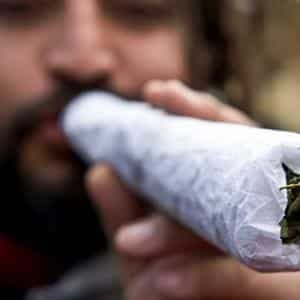 I came across an amazing research project that was conducted by D. Mark Anderson from Montana State University, and Daniel I. Rees from the University of Colorado. I’m not sure when the project was conducted, as there is no date. These scholars conducted a research project titled, ‘The Legalization of Recreational Marijuana How Likely is the Worst-Case Scenario?’ The research project looked at the following areas: the effect of legalization on price, the effect of legalization on marijuana consumption, the effect of legalization on alcohol use, the effect of legalization on traffic fatalities, the effect of legalization on teenage use, and the effect of legalization on crime and other public health outcomes.
I came across an amazing research project that was conducted by D. Mark Anderson from Montana State University, and Daniel I. Rees from the University of Colorado. I’m not sure when the project was conducted, as there is no date. These scholars conducted a research project titled, ‘The Legalization of Recreational Marijuana How Likely is the Worst-Case Scenario?’ The research project looked at the following areas: the effect of legalization on price, the effect of legalization on marijuana consumption, the effect of legalization on alcohol use, the effect of legalization on traffic fatalities, the effect of legalization on teenage use, and the effect of legalization on crime and other public health outcomes.
The project seemed to be quite extensive. There are numerous articles out there from journalists and activists, but I found this study to be particularly interesting since it was from an academic point of view. Colorado and Washington already legalized marijuana in 2012, and four more states are looking good for legalizing in 2014 (Oregon, Alaska, Missouri, and Rhode Island). Even more states should come on board in 2016. This study should be referenced quite a bit during those campaigns.
In the area of legalization’s effects on price, the project found that prices could drop as much as 40% in the next four to five years after legalization. This is an area of the study that I don’t agree with, mainly because of how they collected their data and evaluated it. The price of marijuana will no doubt drop when it becomes legal, but not for the reasons that the study suggests. The project looked at High Times’ price guide, which no offense to High Times, but at the very least the numbers for Oregon are way too high. If that is the case with Oregon, I’m thinking it might also be the case for other states. All of the High Times prices I have seen for Oregon are high 200’s to low 300’s. Anyone paying more than low to mid 100’s needs to do more shopping around. With that being said, pricing marijuana is a very tough thing, especially nationwide, so I will say I agree prices will drop, but why and how much, only time will tell.
The project looked at consumption rates overall, and suggested that consumption would go up after legalization, which I agree with. But again, I disagree with some of their reasoning. They tie consumption rates to price, and reason that as the price falls consumption will increase. In almost every area of economics this would definitely be true. However, marijuana is going from the black market to the legal market, which is significant. I know a lot of people that would buy marijuana if it were legal, but won’t consider it while it’s illegal. Consumption will definitely go up after legalization, but price doesn’t have nearly as much of an effect as does legality.
The most interesting area of this project is marijuana legalization’s likely effect on alcohol consumption and alcohol related social costs. The study states, ‘as marijuana becomes more available, young adults in Colorado and Washington will respond by drinking less, not more. If non-medical marijuana states legalize the use of recreational marijuana, they should also experience reductions in drinking with the accompanying public health benefits.’ I completely agree with this assessment. Marijuana is safer than alcohol, and a lot of people would love to make the safer choice by consuming marijuana rather than alcohol, but don’t currently because one is legal and the other is not.
In the area of traffic fatalities the project states, ‘Reducing traffic injuries and fatalities is potentially one of the most important public
health benefits from legalizing the use of recreational marijuana.’ The project suggests that teenage use will remain the same as it does now, and that violent crime would decrease after legalization due to the fact that more people would use marijuana instead of alcohol. If there’s one thing that a person could gleam from this project it’s that marijuana is clearly safer than alcohol, and that if we can get people to use marijuana instead of alcohol, society would be much better off. Which is something that marijuana activists have been saying for decades.








